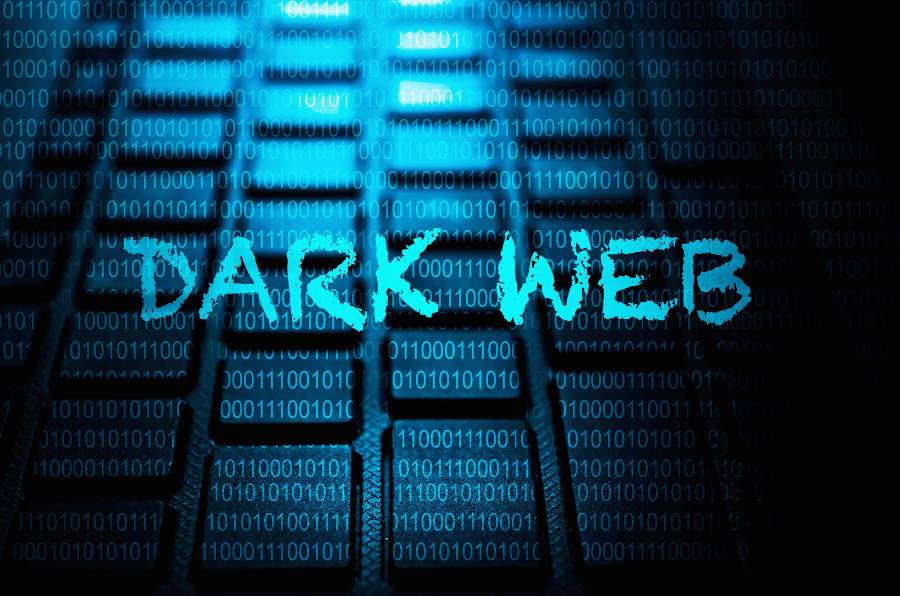The dark web – the hidden corners of the internet not indexed by search engines, is notorious for illicit activities. However, with the growing audience in this murky territory, some brands are questioning if the dark web’s anonymity and cryptocurrency infrastructure can facilitate legal commerce. This piece delves into that debate through first-hand accounts of marketing on the dark web.
Mainstream Brands Diving into the Dark Web Abyss
Back in 2014, Facebook made headlines by launching a portal on the dark web. Accessed through the Tor browser to guarantee anonymity, it allowed users to access Facebook without surrendering personal information. Facebook framed it as providing secure communication avenues for oppressed groups, while critics saw it as a pursuit of shady traffic and marketing dollars.
Facebook is not alone in exploring the dark web territory. Social media giants like Reddit and Twitter have also hosted dark web versions to provide anonymity to users. News outlets including the BBC, CNN, and New York Times have experimented with dark web editions, allowing reporters to communicate securely with whistleblowers.
Privacy-centric IT companies like ProtonMail and DuckDuckGo market their encrypted email and anonymous search services to the tech-savvy dark web crowd. Decentralized dark web platform Freenet has raised funds by accepting donations in Bitcoin and Monero.
Illegal opioid dealers have sold medicines from Pfizer, Johnson & Johnson, and others without prescription through dark web pharmacies, inadvertently intersecting global pharmaceutical players with the dark web. Despite this, the regulation of drug sales on the dark web remains minimal.
Consumer brands like Nike, Gucci, and Louis Vuitton have fought counterfeit products being trafficked on dark web marketplaces without their consent or compensation. But could legitimate dark web sales be an untapped outlet?
Navigating Murky Waters: Major Brands Test Dark Web Marketing
While social media, news media, tech, and pharma companies have perhaps more obvious inroads into the dark web space, some traditional consumer brands are also assessing the risks and rewards.
In 2016, McDonald’s investigated promotional campaigns on darknets to reach customers craving Big Macs away from prying eyes. However, the company ultimately declined, wary of associating their family-friendly brand with illegal dark web content.
Cannabis companies, on the other hand, have leaned into dark web advertising. In states where cannabis is legal, dispensaries promote THC, CBD, and other marijuana products using the anonymity of the darknet. However, the availability extends far beyond regulated dispensaries, underscoring the ethical dilemma.
Cryptocurrency exchanges like Coinbase, Kraken, and Binance are also attempting to reach dark web audiences already transacting in Bitcoin and Monero. Yet promoting legal crypto trading carries different ethical considerations than enabling access to restricted substances.
No current regulations prohibit legal advertising on the dark web, but brands must weigh the risks versus rewards meticulously.
Cautionary Tales: The Perils of Dark Web Marketing
The dark web presents an alluring horizon for marketers and companies seeking to expand their reach into niche communities. Yet, the legal dark web advertising comes fraught with ethical quandaries:
- How can brands ensure their values align with anonymous dark web users and site content?
- When profit motivations clash with social responsibilities, how can legal marketers avoid enabling access to potentially dangerous or addictive substances?
- Does marketing in an uncontrolled environment cross an ethical line? Small actions may have outsized consequences.
- How can brands balance the privacy afforded by anonymity with transparency about who is ultimately behind dark web promotions?
- Can marketers effectively track performance and attribute sales to quantify the return on dark web investments?
Companies considering the dark web should proceed with caution, implementing robust risk management strategies.
Tread Carefully: Mitigating Dark Web Marketing Risks
For brands assessing potential opportunities on dark web markets and forums, robust risk management is essential:
- Thoroughly vet specific sites to ensure they align with your brand values and content guidelines.
- Consult legal counsel regarding regulations for restricted products you sell like pharmaceuticals, firearms, or controlled substances.
- Start with minimal brand exposure and investment as a test, closely tracking performance to determine if expanding presence merits additional spend.
- Implement brand protection for trademarks and copyrights, acting swiftly on unauthorized usage or counterfeit sales.
- Enforce strict ethical advertising policies regarding dangerous or addictive substances.
- Have crisis management plans ready for PR backlash related to dark web activity.
With careful due diligence and restraint, legal dark web advertising can pay dividends for some brands. However, a strong ethical grounding and risk management strategy remain essential prerequisites to avoid dangerous missteps.
The Future of Dark Web Marketing
The dark web advertising remains a niche, akin to the early days of the internet. If dark web audiences continue to grow, previously unthinkable brand promotions could become reality within a decade. Imagine buying Starbucks coffee with Bitcoin on a dark web marketplace or anonymously live-streaming NFL games through the Tor browser.
These ideas may currently exist only in marketers’ minds, but the lure of reaching niche audiences unseen on the open internet could propel more brands into the shadows. As the dark web’s libertarian ethos argues, the potential rewards of reaching niche audiences might be worth the ethical risks. Yet, as most experts advise, companies should lead with ethics, not just their wallets, in this uncharted terrain.
Illuminating a Murky Path Forward
The dark web presents a paradox for legal businesses. The same anonymity that enables free speech beyond government reach also cloaks dangerous misdeeds. Are the potential rewards of reaching niche audiences worth the ethical risks?
No consensus answer exists given the dark web’s early stage. However, for brands considering this uncharted terrain, upholding corporate values is crucial. Thoroughly vet sites and communities, start slowly with minimal exposure, monitor closely, and disengage at the first sign your marketing enables harm—financial upside never justifies societal downside.
The dark web’s libertarian ethos may argue otherwise, but companies carrying beacons of ethics and humanity through the shadows can illuminate the path forward. Lead with your light, not just your wallet. Right now, glimmers remain dim, but hope persists.
In closing, marketers should approach the dark web with eyes wide open. While rewards wait in the shadows, even greater risks lurk in darkness. Tread carefully.
Dark web marketing refers to advertising and promotional activities conducted on the dark web, a part of the internet not indexed by traditional search engines and accessible only through specialized browsers like Tor. Mainstream brands might venture into dark web marketing to reach niche audiences, provide secure communication channels, or explore new, unregulated market spaces. However, it’s a delicate terrain, laden with legal and ethical challenges, hence brands need to exercise extreme caution, ensuring their activities on the dark web align with legal frameworks and their own ethical guidelines.
The dark web offers a level of anonymity and privacy unmatched by the surface web, potentially attracting individuals seeking discreet transactions. Brands might find a unique, untapped audience on the dark web, especially those dealing in products or services that align with the privacy-centric values of dark web users. However, the risks are significant. The dark web is notorious for illicit activities, and association with such a platform could harm a brand’s reputation. Moreover, the lack of regulation and oversight could expose brands to legal liabilities and ethical dilemmas.
Mitigating risks in dark web marketing requires a well-rounded strategy. Brands must thoroughly vet the platforms and forums they engage with to ensure alignment with legal and ethical guidelines. Consulting with legal experts to understand the regulatory landscape is crucial. It’s also advisable to start with minimal brand exposure and investment, closely tracking performance and audience response to evaluate if expanding presence on the dark web merits the associated risks. Moreover, having robust crisis management plans and adhering to ethical advertising policies can further help in navigating the complexities of dark web marketing.











